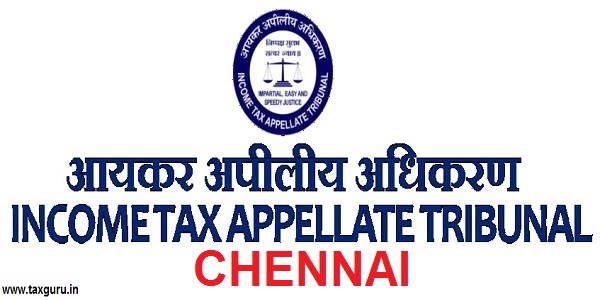Tarun Gulati
Earlier, India was isolated from the world markets and it went global only in 1991 with the change in policies for Foreign Trade, foreign direct investments, etc. This move towards globalization brought in new requirement for changes in the taxation and other laws as the MNC’s started investing in India and acquisition of business houses was getting inevitable. There were many transactions taking place between the same group companies and the transfer price between them started playing a major role in impacting the profits and losses of Indian companies. Amendment in taxation laws for such transactions then became the need of hour so that the tax planning can be kept under check and the Indian economy is not made to suffer and especially for the tax evasions if any on transactions between the companies under same banner. Indian Tax Authorities than first introduced the Transfer Pricing Regulations (TPR) through the Finance Act, 2001 and made it effective from the Financial year ending March 2002. These provisions were set to be governed by the Income Tax Act, 1961 and were based on the Transfer Pricing guidelines of Organization for Economic Co-Operation and Development.
Transfer pricing Laws have been enumerated under Sections 92 to 92F of the Indian Income Tax Act and cover intra-group cross-border transactions. Rules and regulations prescribe that income arising from International Transactions or Specified Domestic Transactions between Associated Enterprises (AE), should be computed having regard to the arm’s-length price.
International transaction means a transaction between two (or more) AE involving the sale, purchase or lease of tangible or intangible property or provision of services or cost-sharing agreements, lending/ borrowing of money or any other transaction having a bearing on the profits, income, losses or assets of such enterprises.
The relationship of AE is defined to cover direct/ indirect participation in the management, control or capital of an enterprise by another enterprise. It also covers situations in which the same person participates in the management, control or capital of both the enterprises.
The term ‘arm’s-length price’ is defined to mean a price that is applied or is proposed to be applied to transactions between persons other than Associated Enterprises in uncontrolled conditions. The following methods prescribed as per the Act for the determination of the arm’s-length price:
- Comparable uncontrolled price (CUP) method.
- Resale price method (RPM).
- Cost plus method (CPM).
- Profit split method (PSM).
- Transactional net margin method (TNMM)
- Such other methods as may be prescribed
It has been notified that the ‘other method’ for determination of the arm’s-length price in relation to an international transaction shall be any method which takes into account the price which has been charged for the same or similar uncontrolled transaction, with or between non-associated enterprises, under similar circumstances, considering all the relevant facts. No particular method has been accorded priority and the most appropriate method for the transaction would need to be determined having regard to the nature and class of transaction or associated persons and functions performed by such persons, as well as other relevant factors.
Until Financial Year 2011-12, transfer pricing regulations were not applicable to domestic transactions. Finance Act 2012 has extended the application of transfer pricing regulations to domestic transactions christened as ‘Specified Domestic Transactions’, being the following transactions with certain related domestic parties, provided the aggregate value of such transactions exceeds INR 5 crore :
- Any expenditure with respect to which deduction is claimed while computing profits and gains of business or profession.
- Any transaction related to businesses eligible for profit-linked tax incentives, for example, infrastructure facilities (Section 80-IA) and SEZ units (section 10AA)
- Any other transactions as may be specified
This amendment will be applicable for FY 2012-13 and subsequent years.
Taxpayers are required to maintain a set of information/ documents relating to International Transactions undertaken with AEs. Rule prescribes detailed information and documentation that has to be maintained by the taxpayer. Such requirements can broadly be divided into two parts.
The first part includes information on ownership structure of the taxpayer, group profile, business overview of the taxpayer and AEs, prescribed details (nature, terms, quantity, value, etc.) of international transactions. The rule also requires the taxpayer to document a comprehensive transfer pricing study.
The second part of the rule requires that adequate documentation be maintained that substantiates the information/ analysis/ studies documented under the first part of the rule and it also contains a recommended list of such supporting documents, including government publications, reports, studies, technical publications/ market research studies undertaken by reputable institutions, price publications, relevant agreements, contracts, and correspondence.
Taxpayers having aggregate international transactions below the prescribed threshold of INR 1 crore and Specified Domestic Transactions below the threshold of INR 5 crore are relieved from maintaining the prescribed documentation. However, it is imperative that the documentation maintained should be adequate to substantiate the arm’s-length price of the international transactions or specified domestic transactions.
Companies to whom transfer pricing regulations are applicable are currently required to file their tax returns on or before 30 November following the close of the relevant tax year. The prescribed documents must be maintained for a period of nine years from the end of the relevant tax year, and must be updated annually on an ongoing basis.
It is imperative to obtain an Independent Accountant’s Report in respect of all international transactions between AEs and the same has to be submitted by the due date of the tax return filing (i.e. on or before 30 November). The form of the report has been prescribed and it requires the accountant to give an opinion on the proper maintenance of prescribed documents and information by the taxpayer.




























I want to see syllabus and scheme of diploma on transfer pricing.
It is time the B-Schools included the subject of Taxation in the syllabus for finance major. Transfer Pricing should be an important element in the study of Taxation. Additionally Double Taxation in International Business and it Avoidance through bipartite Agreements should be taught to students who specialise in International Business.